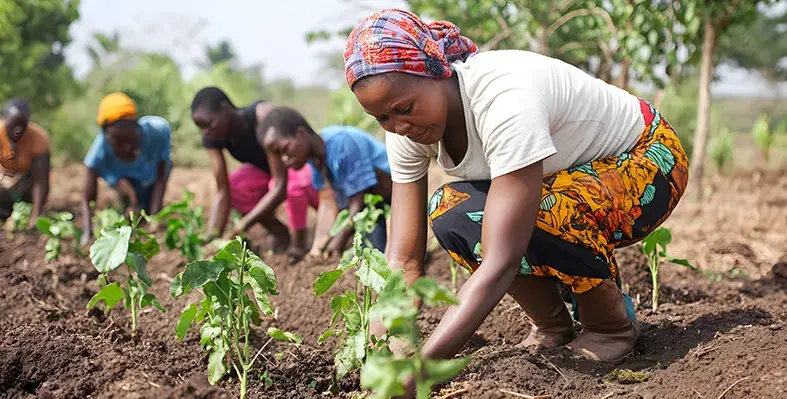In Kartoua, a quiet village in Cameroon’s Far North region, a group of determined women is leading a powerful shift—from grain scarcity to food security
Faced with seasonal floods and recurring hunger, they formed a cereal bank not just to store millet and rice, but to offer their community a lifeline during the lean season.
The initiative began when twelve women established the Soubota Common Initiative Group (GIC). Their goal was to buy staple grains at low prices after harvest and store them for resale at affordable rates when supplies typically run low. This simple but effective model has helped vulnerable families access food without the inflated costs that often accompany shortages.
“When we started, many didn't believe in us, especially the men,” said Ahmadou Sergeline, president of the cereal bank and a mother of nine. “But over time, as they saw how we were helping the village, everything changed. Even my husband now supports and advises me.”
When flooding hit and millet became scarce, the women had already stored 20 sacks—support provided by the Cameroon Red Cross, along with training in stock management and basic accounting. This preparation made a critical difference.
“Before, we didn't keep proper records. Now we have ledgers for everything—what comes in, what goes out, and what belongs to whom,” Sergeline explained. Community members also entrust their personal cereal bags to the bank for safekeeping, paying a small fee.
With fairness at its heart, the initiative prioritises support for the most vulnerable. The group set rules to prevent hoarding, limiting purchases to four measures per household and ensuring that grain went to those truly in need. Widows, elderly residents, and female-headed homes have especially benefited.
Profits from the initial sales were reinvested in buying more stock—this time, 45 sacks of rice. While typically, revenue is split among committees managing operations, hygiene, and restocking, the group chose instead to reinvest everything. They saw the growing need and responded as a united front.
The Red Cross’s Programmatic Partnership with the European Union, implemented in 24 countries, supports initiatives like these. In Kartoua, the French Red Cross and Cameroon Red Cross collaborate closely with the women, offering long-term, strategic support beyond emergency response.
“They didn’t just bring us grain. They brought us respect. They saw us not as beneficiaries, but as partners,” said Sergeline.
The cereal bank has also become a place for education and empowerment. “When we meet, we don’t just talk about millet. We talk about running our households, educating our daughters, strengthening our marriages. I have seven girls. I want them to see that women can lead too.”
For Sergeline, a sack of millet is more than food—it’s a step toward dignity, security, and a stronger future for her entire village.





